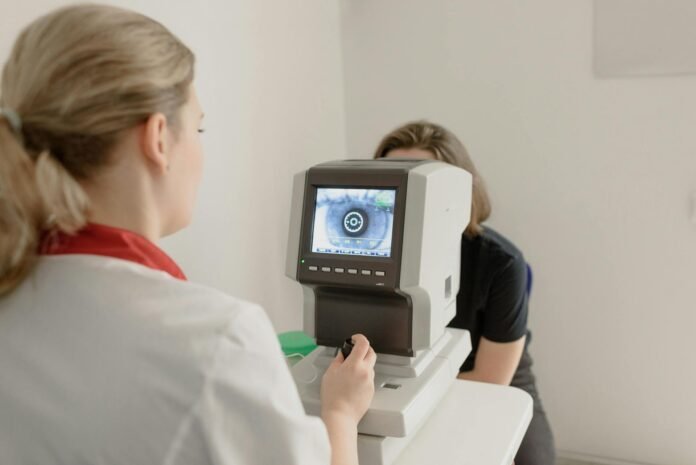An eye exam is not just about getting an updated prescription for glasses or contacts—it’s a comprehensive evaluation of your eye health and vision. Good results from an eye exam mean obtaining accurate assessments that can guide appropriate treatments, interventions, or corrective measures. Here’s how you can prepare and participate effectively to ensure the best possible outcomes from your eye exam.
1. Provide a Complete Health History
Table of Contents
Your overall health can affect your eyes. Conditions like diabetes, high blood pressure, and autoimmune diseases can impact your vision and eye health. Be sure to provide your optometrist with a detailed medical history, including any current or past health issues and a list of all medications, both prescription and over the counter, as some can affect your vision.
2. Understand Your Family’s Eye Health
Certain eye conditions are hereditary. Knowing your family’s eye health history can help the optometrist look for signs of genetically predisposed conditions such as glaucoma, macular degeneration, or cataracts.
3. Follow Pre-Exam Instructions
If you wear contacts, you might be asked to switch to glasses before your appointment. Contacts can temporarily alter the shape of your corneas, which can affect some measurements taken during the exam. Your eye doctor’s office will specify how long before the exam you should remove your contacts, if necessary.
4. Document Your Vision Issues
Before the exam, take note of any vision problems you are experiencing. Be prepared to discuss them with your eye doctor. This includes intermittent issues such as eye strain, headaches, blurred vision, seeing halos around lights, or difficulties with night vision.
5. Rest Well Before Your Exam
A good night’s sleep can help you be alert and responsive during your eye exam. Fatigue can affect your ability to focus during tests, potentially skewing results.
6. Avoid Eye Strain on the Day of the Exam
On the day of your exam, try to keep your eyes as relaxed as possible. Avoid prolonged reading, excessive screen time, or other visually demanding tasks before your appointment to prevent eye fatigue.
7. Ask Questions
An eye exam is also an opportunity to address any concerns about your vision or eye health. Prepare questions in advance about any symptoms, your risk of eye diseases, lifestyle adjustments to protect your vision, or the latest corrective options like new lens technologies.
8. Be Consistent with Appointment Timing
If possible, try to schedule your eye exams at a similar time of day. This is particularly important for conditions like glaucoma, where intraocular pressure can vary throughout the day, potentially affecting the consistency of test results.
9. Follow Through with Recommendations
After the exam, follow your optometrist’s recommendations. This may include getting prescribed eyewear, taking medications, or scheduling follow-up exams. Compliance is key to managing eye health effectively.
An eye exam can be a straightforward, informative process that significantly impacts your overall health and quality of life. By preparing properly and actively participating during the exam, you can help ensure that your results accurately reflect your vision and eye health status, leading to better care and management of any existing or potential eye conditions.


